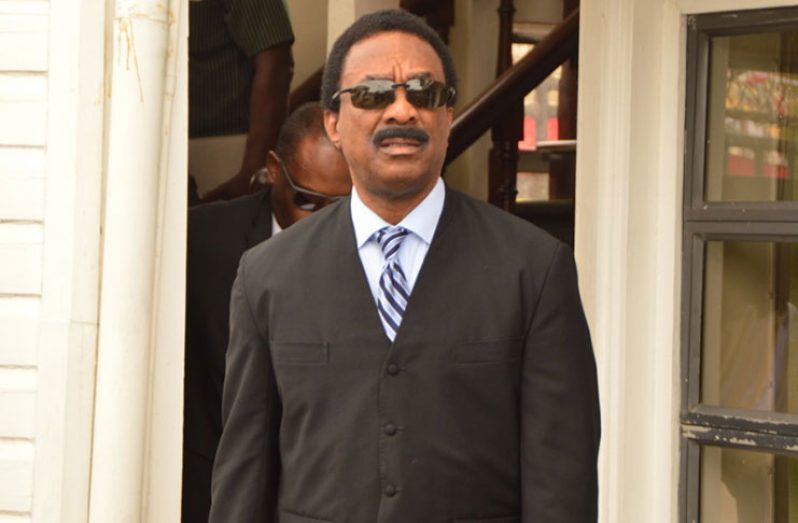…urges CCJ to affirm decision of Court of Appeal
ATTORNEY General, Basil William, in asking the Caribbean Court of Justice to affirm the decision of the Court of Appeal that the Opposition did not acquire the “high requirement” for the passage of a Motion of No-Confidence, maintaining that at least 34 votes were needed to defeat the Government and not 33.
In setting the tone of his oral submissions in the consolidated appeals challenging the Court of Appeal’s decision in the Caribbean Court of Justice, Williams, from the onset, admitted that the provisions in Article 106 (6) and (7) have dire consequences for Government, explaining that if successful, the motion can lead to the premature dissolution of the National Assembly, and an early end to Government.
Williams told the Court that the No-Confidence Motion was laid and debated in the House at a time when the government was only in its third year in Office. Prior to the election of the Coalition Government, the country, he said, had endured 23 years of extra-judicial killings, corruption and hardship under the previous administration. Guyana, he posited, was deemed a narco-state.
On that note, the Attorney General said it was important for the Court to strictly apply the provisions of Article 106 (6) and (7). He said Article 106 (6) mandates an absolute majority and not a simple majority. “With such catastrophic consequences, the majority required could not be a simple majority,” Williams posited while pointing the Court’s attention to pronouncements made by former President of the CCJ, Sir Denis Byron on Article 164 of the Constitution of Guyana.
Williams said Sir Denis formulated three levels of entrenchments that ought to be pervasive, and cannot be restricted. Quoting Sir Denis, the Attorney General said that the shallowest level of entrenchment is an absolute majority which is determined by a majority of all the elected members of the National Assembly.
He was keen on pointing out that a simple majority is a majority of the Members of Parliament present and voting while an absolute majority is half of the 65-Member of Parliament plus one. Because a fraction would be derived due to the House having an uneven number of MPs, the Attorney General submitted to the court that the fraction must be ‘rounded up’ to become a whole number before one is added. Only then can an absolute majority be arrived at, he argued.
The half plus one formula, as contended by Sir Francis Alexis in the Court of Appeal can be best described as a two-stage formula. “In the first stage, you determine what is half of 65, and when you do that, you get 32.5, which is a fraction. Since there is no half human being, you round up to 33. So 33 is half and therefore to get a majority, you plus one to get 34, which is the second stage,” the Attorney General explained.
He submitted that an absolute majority and simple majority cannot be the same.
Sanjeev Datadin, the Attorney representing Charrandass Persaud and Douglas Mendes, the Leader of the Opposition Attorney, had rejected the two-stage approach on the basis that the Constitution did not state that an “absolute majority” but rather a majority of all members of the National Assembly. They argued that 33 votes were needed, and 33 votes were acquired on the night the Motion of No-Confidence was put to a vote.




.jpg)










